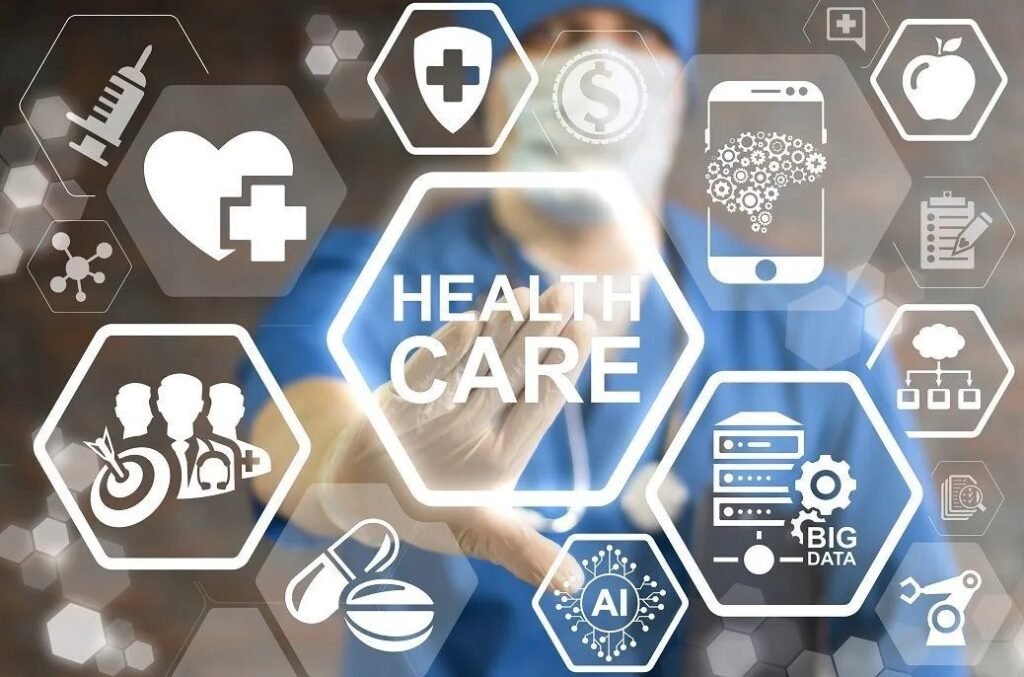The rapidly evolving landscape of healthcare is set to redefine how we approach wellness, treatment, and patient care. With advancements in technology and a growing understanding of patient needs, stakeholders are positioning themselves to revolutionize the health sector. As we look ahead, several key trends emerge, highlighting the intersection of technology, patient empowerment, and personalized treatment options.
Telemedicine: Breaking Barriers
Telemedicine has gained significant traction in recent years, especially exacerbated by the global pandemic. The ability to consult with healthcare professionals from the comfort of one’s home has transformed access to care. Patients no longer face the challenges of travel, long waiting times, or geographic barriers, leading to a more inclusive healthcare model. This innovation has prompted healthcare systems to adopt more flexible scheduling and streamlined processes that cater to the needs of the modern patient.
Wearable Technology: Monitoring Health in Real Time
The proliferation of wearable technology has made personal health data more accessible than ever. Devices such as smartwatches and fitness trackers not only monitor physical activity and vital signs but also provide insights into users’ health patterns. The potential for these devices to transmit real-time health information to providers can lead to more proactive healthcare management, allowing for early intervention and tailored treatment plans based on continuous data collection.
Artificial Intelligence: Enhancing Decision-Making
Artificial intelligence (AI) is poised to become a cornerstone of healthcare innovation. From diagnostic tools to treatment algorithms, AI is enhancing decision-making processes in clinical settings. By analyzing vast datasets, AI can assist healthcare professionals in identifying patterns that might go unnoticed, improving diagnosis accuracy, and personalizing patient care. As AI technology evolves, its applications will continue to expand, offering healthcare providers unprecedented levels of support.
Personalized Medicine: Tailored Treatments for Every Patient
The shift towards personalized medicine is redefining how we view treatment options. By leveraging genetic information and advanced research, healthcare providers can create treatment plans uniquely suited to individual patients. This approach not only increases the likelihood of successful outcomes but also shifts the focus from a one-size-fits-all model to a more nuanced and patient-centric strategy. As research continues to shed light on genetic factors influencing health, we can expect more tailored treatments across various conditions.
Virtual Reality: Revolutionising Education and Training
Virtual reality (VR) is not confined to entertainment; it has significant potential in healthcare education and training. Medical professionals can utilize VR simulations to practice procedures and hone their skills in a risk-free environment. This immersive experience enhances learning outcomes and prepares healthcare workers for real-world challenges. Beyond training, VR can also play a role in patient therapy, helping to manage pain or anxiety through engaging and distracting experiences.
Blockchain: Securing Health Records
As the need for data security in healthcare grows, blockchain technology offers a viable solution for protecting patient information. By providing a decentralized and transparent method of recording transactions, blockchain can enhance the security and accessibility of health records. This technology can allow for better interoperability between healthcare systems, ensuring that patients’ information travels seamlessly and securely across different entities while maintaining ownership and privacy.
The Role of Big Data in Public Health
The integration of big data analytics into healthcare provides profound insights that can influence public health policies and practices. By analyzing data collected from a variety of sources—such as electronic health records, patient surveys, and demographic information—healthcare providers can identify trends, track disease outbreaks, and evaluate the effectiveness of interventions. This evidence-based approach enhances decision-making processes and supports the development of effective health strategies.
Remote Patient Monitoring: Continuous Care
Remote patient monitoring has emerged as a key component of continuous care, allowing healthcare providers to keep track of patients’ conditions outside traditional clinical settings. Through connected devices that monitor health metrics, such as glucose levels or blood pressure, clinicians can provide timely interventions based on real-time data. This approach not only improves patient outcomes but also increases patient engagement, as they take an active role in their health management.
The Shift Towards Preventative Care
A shift towards preventative care is becoming increasingly vital as healthcare systems seek to mitigate the rising costs associated with chronic diseases. By prioritising preventative measures—such as regular screenings, vaccinations, and lifestyle modifications—healthcare providers can reduce the incidence of serious health conditions. This proactive approach not only benefits individual patients but also alleviates pressure on healthcare systems, making them more sustainable in the long term.
Challenges and Considerations
While the future of healthcare looks promising, it is essential to acknowledge the challenges that lie ahead. Issues such as data privacy, access to technology, and the digital divide must be addressed to ensure equitable healthcare for all. As innovations take center stage, healthcare systems must implement regulatory frameworks and ethical guidelines that protect patient information while promoting technological advancements. Collaboration between technology providers, healthcare professionals, and policymakers will be critical to navigating these challenges effectively.
Conclusion: Embracing the Future of Healthcare
The transformation of healthcare through technology is a journey that has just begun. With advancements in AI, personalized medicine, VR, blockchain, big data analytics, and remote patient monitoring, the future of healthcare looks promising. By leveraging these innovations and addressing challenges proactively, we can create more efficient and equitable healthcare systems that benefit patients globally. As we continue to embrace new technologies, it is crucial to remember that at the heart of every innovation lies the goal of enhancing patient care. So let’s continue to push boundaries and embrace the potential of technology in shaping the future of healthcare.
